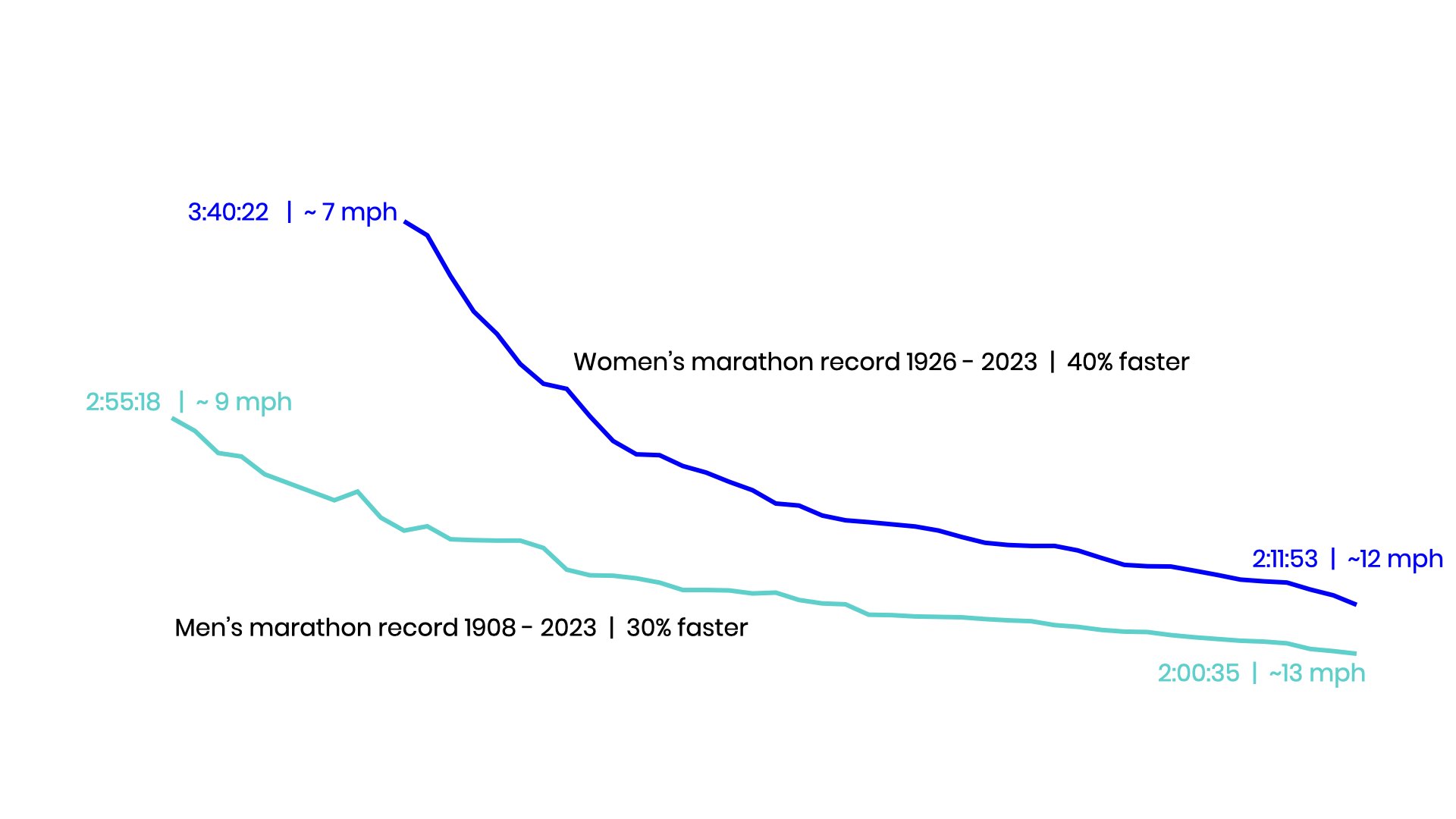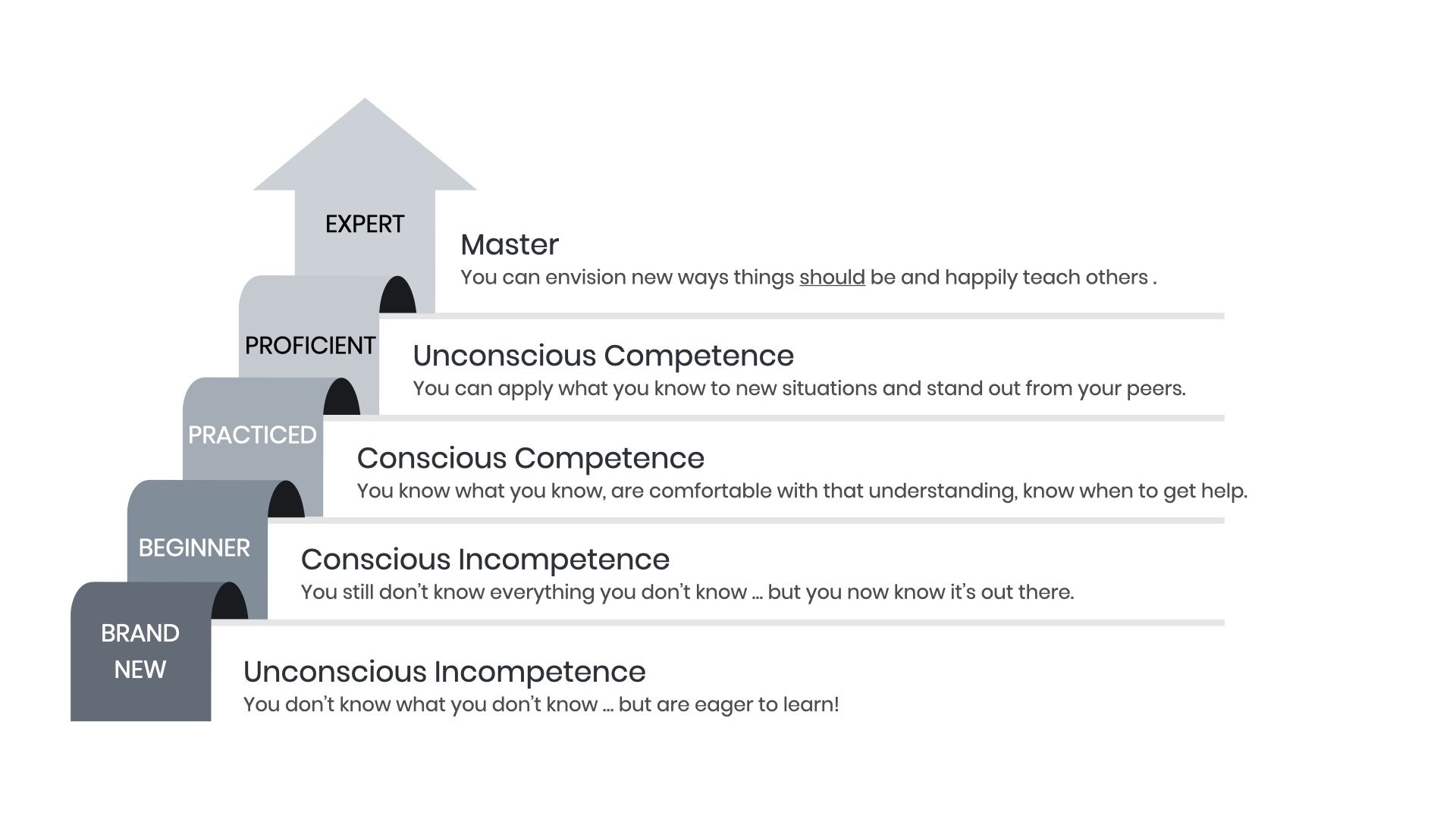Why purposeful practice?
“If I have seen further than others, it is by standing on the shoulders of giants.”
— Isaac Newton
We humans have always gotten better at things. One generation learns a skill or invents a technology, the next refines and improves it. Once in a while, we make something obsolete because we have discovered a new way of understanding the world around us … to the benefit of our generation and those that follow.
Take the speed and endurance needed to run a marathon. In the past century, the woman’s record time has improved one-and-a-half hours, more than 40% faster in 2023 than in 1926. Since 1908, the pace for men’s record holder has improved by nearly half, from 9 mph to 13 mph. If it hans’t happened any the time you’re reading this, the first sub-two-hour marathons are not far off (source: Wikipedia):
For decades, now, we humans have studied how we learn a new skill. There is a growing consensus for something you already know: No one is born an expert, naturally gifted with certain skills. Instead, expertise is learned. And, it turns out, Ben Franklin was not quite right: Practice does not necessarily make perfect. Purposeful practice (or deliberate practice or intentional practice) is how we humans become experts at anything.
“Perfect practice makes perfect”
— Vince Lombardi
You can take two key insights from this scientific exploration of how we get better at getting better and apply them to your coaching. The first is that expertise is a journey and we pass through different stages on our way from brand new to expert:
Levels of competency
The shorthand we all understand for this concept is that before we run, we have to walk. And before we walk, we have to crawl. The lesson is twofold: Meet your players where they are in their journey, don’t expect more than they are ready for (and don’t allow less than they are capable of).
The second key takeaway is that there are proven strategies and tactics we use to develop a new skill better and faster. The tips and tricks of Purposeful Practice arise from numerous rigorous studies (see suggested reading) and can be used by anyone committed to mastering a new skill (or anyone who wants to help someone else master a new skill):
Focus on the most important skills first
Break a skill into its component micro-skills
Master one component skill at a time
Purposeful practice is hard - Celebrate every success
Pre-plan your practice and choose what to focus on
Use data to determine success and areas of focus
Every person learns differently - Try new ways of practicing a new component skill
The learner must take ownership of and responsibility for their progress toward mastery
“Hard work beats talent when talent doesn’t work hard”
— Tim Notke
On a final note, nurture cannot trump nature every time. If it could, a slow, 5’8” kid with bad eyes from SoCal would have been the starting catcher for the Red Sox when they (finally) won a World Series this century. Our job as youth sports coaches is not to nurture the next superstar, although that would be fun. Our job, instead, is to foster a love for our chosen game, respect for others, resilience, and begin to build the habits of excellence.


